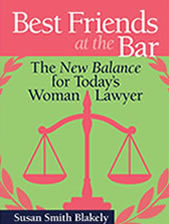I LOVE March Madness. Absolutely love it. Some of my enthusiasm is because I am a college basketball fan, and some of it is because of the memories.
When our kids were young, we spent most spring breaks in the mountains on skis. After a day on the slopes, we would go to a bar/tavern in a little western town for burgers — as long as there was a TV tuned to March Madness. I still remember being in Crested Butte, Colorado and seeing Duke’s Christian Laettner sink that famous shot to beat Kentucky during the 1992 Elite Eight. Everyone in the joint, even those like us who were not Duke fans, screamed with pleasure as that beautiful shot swished through the hoop. Those memories are precious.
What I love most about March Madness is seeing the flawless teamwork from players at that level. Every one of them understands that he has a job to do, and they have to work together like a smooth operating machine to get the desired result — winning, of course. If you have been watching 2021 March Madness, you know that it does not get much better than watching the teamwork that Gonzaga demonstrates on the court. No wonder they are 30-0 for the season. I have them to take the trophy, but we will see ….
Teamwork is also important in law practice. It is not a place for prima donnas, who try to steal the spotlight. If you are not prepared to be an effective team member, with a team mentality, it will be challenging to be successful. Team members can spot a member out for personal glory in a heartbeat, and they will drop him or her like a bad habit.
Teamwork is so important that law schools need to present more opportunities to experience it and learn it. MBA programs figured that out years ago and have been emphasizing it ever since. They listened to what the industry was telling them — that solo players are not as effective in the C Suite and that training needs to start in graduate business programs.
Law schools need to take that same approach. They need to teach skills that are valuable to the team. They need to emphasize that teamwork means not having to dominate the conversation and learning to listen. It means listening to other team members and showing respect for their ideas. It means being reliable and having the backs of your teammates. It means being good for your word. And it means working as hard as necessary to get the job done, even if that means making coffee or fixing the copier. Nothing is off limits for a true team player.
So be a team player. And remember that team play is not just for men — and, in my experience, women are instinctively drawn to team play. And that includes women in college basketball.
As an equal opportunity fan, I love those games, too.













